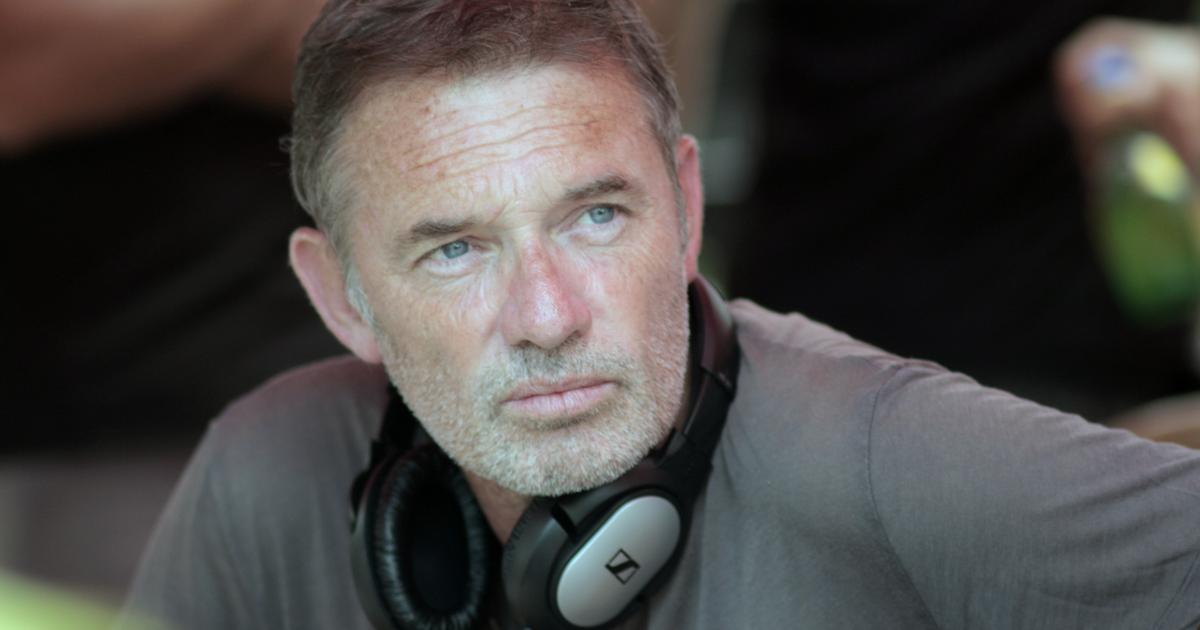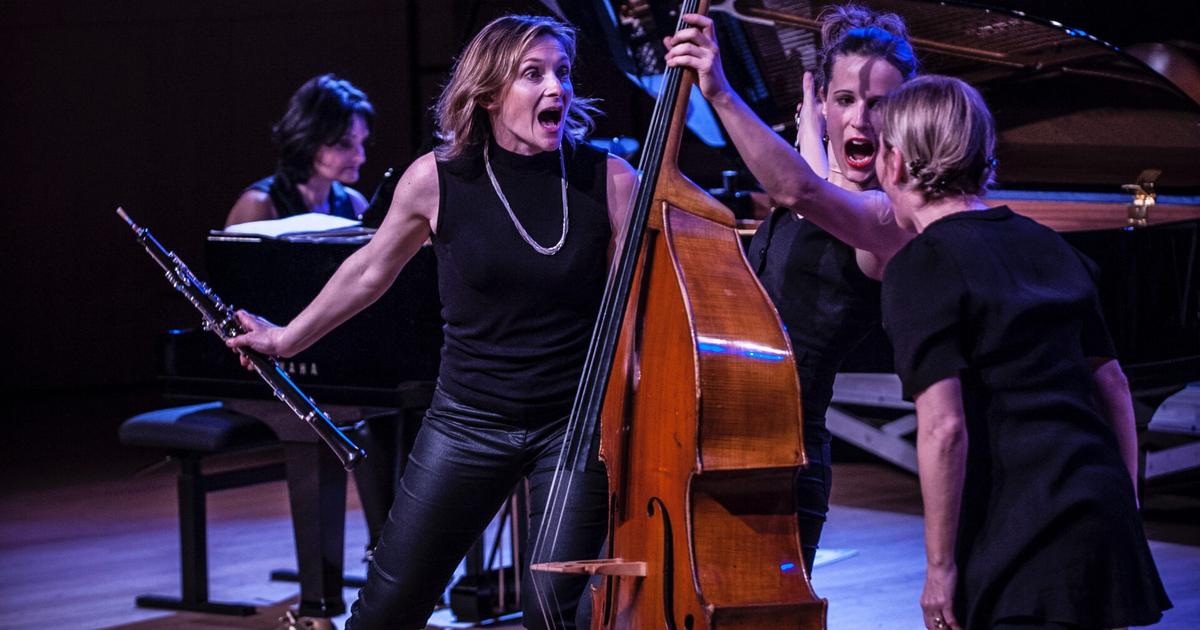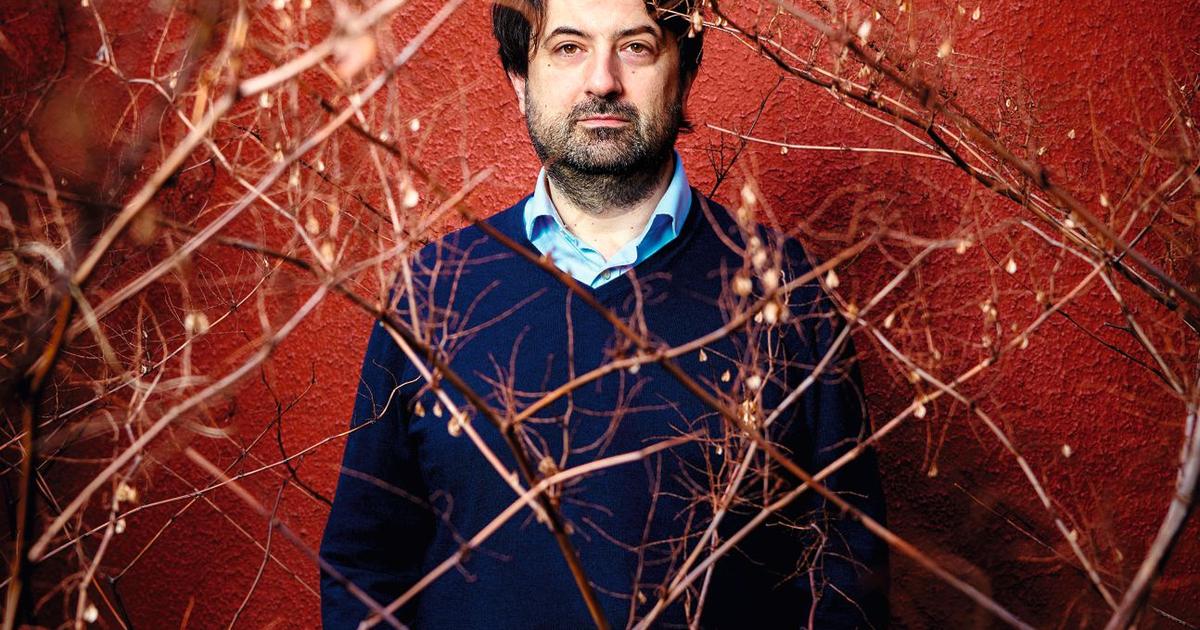The idea for the Belgian choir Vox Luminis was born in Chicago in 2002, during the annual meeting of the World Youth Choir, which brought together 83 young singers from 32 different countries.
"That experience changed my life," admits its creator, the French bass Lionel Meunier (Clamecy, 41 years old).
There he met great current friends, such as the tenor Michael Spyres and the
mezzo
Katarina Bradić, but he discovered two things that marked the creation of his prestigious choir: “The passion that sharing music produced in me and the possibility of combining voices from different backgrounds to create a unique sound.
More information
The Japanese group that has become a benchmark for Bach's music
In that meeting he also discovered the magic of ancient music.
He did so by singing the Renaissance motet for 40 voices,
Spem in alium
, by Thomas Tallis.
And the night of that concert, together with his roommate, the bass player Bertrand Delvaux, also founder of Vox Luminis, he thought about what it would be like to set up a choir and dedicate his life to singing and sharing ancient music around the world with a group of colleagues.
He founded that choir, in 2004, together with nine colleagues from the Royal Conservatory of The Hague, conducting from his bass stand.
He has matured with them and even built a family with the ensemble's first soprano, Zsuzsi Tóth, with whom he has two children.
On March 31, Vox Luminis will be 19 years old.
“I consider myself a lucky man,” he admits.
The giant Meunier, more than two meters tall, receives EL PAÍS in the lobby of his hotel in Madrid, about to start a Spanish tour.
In it he will face, for the first time with Vox Luminis, the emblematic
Passion according to Saint Matthew
, by Bach, in collaboration with the Freiburg Baroque Orchestra.
“It was a project that we formalized five years ago to carry out, in 2020, on an international tour, but that we had to cancel due to the pandemic.
Now we have resumed it and the tour is even bigger, ”he clarifies.
They will perform today, Tuesday, at the National Auditorium in Madrid, then they will travel to Barcelona, on March 30, they will go to the Maestranza Theater in Seville, on Sunday, and will culminate, on April 3, in Valencia.
The Vox Luminis ensemble. FOPPE SCHUT
The next day, on March 31, Philippe Herreweghe with Collegium Vocale Gent will perform at the Palau de la Música Catalana, in the
Saint John Passion,
a very important conductor and group for Meunier.
“Herreweghe is one of my idols and I met him through my teacher, the bass player Peter Kooy, who sang with him, he says.
“As a child I hated vocal music, as he couldn't stand the vibrato of the voices on the opera recordings my father played at home, but everything changed when I heard Kooy's records with Herreweghe singing Bach,” he continues.
Later he would collaborate with Herreweghe himself, but also with Gustav Leonhardt, Ton Koopman, Rinaldo Alessandrini, Christophe Rousset and many more.
“Working with all of them has enriched my personal taste,” he says.
Meunier knows the Saint Matthew Passion
very well.
.
“I have sung it with Richard Egarr, Peter Dijkstra or Lars Ulrik Mortensen, although it should be remembered that there is a huge tradition in the Netherlands and we usually sing about 200 Bach passions every year in a much smaller territory than Spain”, he admits.
But he does not hide the challenge that singing this monumental work supposes for him and Vox Luminis.
“I always thought it wasn't for us, because we didn't have enough voices,” he admits.
However, now they have stable collaborators to grow until adding 24 voices and satisfying all the solo parts.
“My intention is to do the best with this music and that means knowing very well not only the score and the autograph of the work, but also the environment and everything we know about the Church of Saint Thomas, in Leipzig, to the when making decisions about loudness and tempo,
It is one of Bach's most ambitious compositions, which must have astonished the citizens of conservative Leipzig at its first hearing on Good Friday 1727. The German composer not only added arias with modern-style instruments to the traditional Lutheran chorales in the narrative of the passion, but doubled the number and considerably increased its duration.
For all these reasons, the work was known in Bach's environment as the "great passion" to differentiate it from other shorter ones, such as the
Passion according to Saint John.
.
In addition to the two small orchestras and the two choirs with eight soloists, he even added a third of children to sing the choir inserted in the monumental number that opens the work.
“We have arranged different children's choirs for the tour.
In Madrid and Barcelona we will sing with the children's choirs of JORCAM and l'Orfeó Català and in Seville and Valencia with the Escolanía de Nuestra Señora de los Desamparados”, says Meunier.
Lutheran songs
In the song of the Lutheran passion, in recitative style, the evangelist stands out, who will be sung by the tenor Raphael Höhn.
But also that of Jesus, which will be faced by bass Sebastian Myrus, and, among all the other dramatized characters involved, Meunier has reserved the brief role of Pontifex.
Another element is the Lutheran devotion of choirs with texts and melodies well known to the faithful from the 18th century.
And a third is made up of lyrical texts that Bach composed in an operatic style using vocal soloists and various ensembles of instruments.
Here we will listen to the main soloists of the Belgian choir.
“For example, the countertenor Alexander Chance has prepared the alto 1º with his father Michael's, who was one of the great interpreters of that part”, says Meunier.
We will listen to him the popular aria
Erbarme dich, mein Gott
, where he will face the legendary father model.
Vox Luminis has its own instrumental ensemble, which could be heard on its last visit to Madrid, with
King Arthur
, by Purcell, at the Teatro Real.
However, for years they have collaborated with various period instrument ensembles and orchestras, such as the Freiburg Baroque Orchestra.
“We started, in 2017, with the
Vespers
, by Monteverdi, and then we did the
Requiem
, by Biber, which we recorded in Alpha.
Now it has become a structural collaboration.
And we are going to carry out several projects every year ”, he assures.
In Mateo's Bachian Passion, the German group will be divided into two and will be led by its two
concertmasters
, Petra Mullejans and Peter Barczi.
Therefore, we will not see any director on stage, since Meunier will lead the double choir from his position as bass.
The Freiburg Baroque Orchestra.britt schilling
But Vox Luminis will not record, for the moment, the
St. Matthew Passion
.
“I am very happy that we can share our performance with the public in concert, although we need more time to record it,” he admits.
The recordings of the choir, on the Ricercar label (Outhere Music), have been fundamental in consolidating the prestige of Vox Luminis.
In 2012, they won Gramophone
Magazine's Record of the Year award
with their impressive CD dedicated to Schütz's
Musikalische Exequien
, quite a milestone for a non-British early music ensemble.
“Recordings allow me to share my passion, make unknown compositions known and offer my own vision of the well-known ones”, he admits.
Meunier's next record with his choir, titled
Ein Deutsches Barock-Requiem
(A German Baroque Requiem), will be released in April and is a reflection on death.
“This is a highly personal collection of 17th-century German compositions based on the same biblical texts that Brahms used in
A German Requiem
.”
The selection is overwhelmingly beautiful and includes works by almost unknown composers such as Andreas Scharmann and Johann Philipp Förtsch.
“I remember the recording of
Selig sind die Toten
(Blessed are the dead), by Förtsch, with tears running down my cheeks,” he says.
And we ended up talking about the connection between death, religion and music.
“I am terrified of dying.
I have dreamed of my burial many times and as a Catholic the vision that Protestants have helps me a lot, but I assure you that by singing the
Passion according to Saint Matthew
you want to believe in the afterlife, even if you don't.
I am a believer when I sing Bach ”, he argues.
Subscribe to continue reading
Read without limits
Keep reading
I'm already a subscriber

/cloudfront-eu-central-1.images.arcpublishing.com/prisa/NUDNDAGSGZHRLKZLQGGGO2ODLY.png)





/cloudfront-eu-central-1.images.arcpublishing.com/prisa/FFCNWED6DVAEJEQJRTXDRUELJU.JPG)






